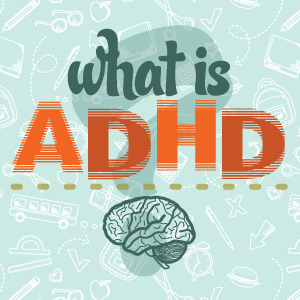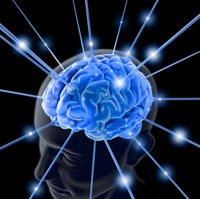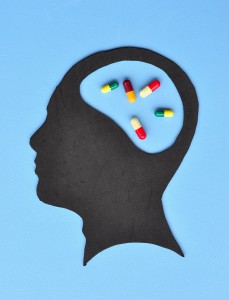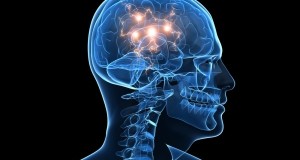Bacopa Monnieri is a herb that has been widely used within Ayurvedic medicine. It’s generally recommended for memory enhancement, stress reduction, even epilepsy and asthma. It is the closest natural supplement to Piracetam. In comparison to other natural products, it is also much stronger.
The benefits of this supplement are not synthesized in a lab. This supplement is made from a wild growing plant. The leaves were found to have a calming effect. It was then discovered that this plant created cognitive enhancement. Research is also looking at the potential neuroprotective properties it may yield.
[sc:Bacopa-Monniera ]
History of Bacopa Monnieri
Bacopa is a herb that is native to Asia, India, Africa, Europe, and South America. This herb has a long history within Ayurvedic medicine in terms of neurological and behavioural defects. It was traditionally used to enhance learning, clarity, concentration, and memory.
Within traditional Ayurvedic medicine, Bacopa Monnieri has also been used for inflammation, tumours, ulcers, and indigestion. It was initially described in the 6th century AD, as an herb that is taken for mental deficits and sharpened intellect.
It was also allegedly used by ancient Vedic scholars in order to memorize scriptures and hymns. Today, many over-the-counter supplements use Bacopa Monnieri as the main ingredient.
How Does Bacopa Monnieri Work?
There is a component in Barcopa Monnieri known as bacosides. This plays a direct role in the regulation of serotonin and dopamine. Both of these neurochemicals are known to regulate mood. As well, serotonin is associated with feelings of peace, and dopamine is associated with mental energy and motivation.
Serotonin and dopamine are the main chemicals associated with Barcopa Monnieri’s effects, but GABA is also influenced. Bacopa Monnieri increases GABA receptors, which is directly related to our stress levels.
Bacopa Monnieri is known as a adaptogen. These work by blocking stress signals at a neurochemical level. This is a proactive measure, stopping stress from triggering a response in the body. When taking Bacopa Monnieri, it decreases HSP70 in the brain. This protein is related to stress levels, so the user is able to adapt better to external factors.
It also increase levels of kinase, which improves communication between our nerves. With GABA, this organizes over-active messages and yields a higher sense of clarity in terms of cognition. In terms of memory, Bacopa Monnieri increase the enzyme TPH2. This increases the production of new connections between neurons. This allows neurons and synapses to increase their activity, allowing information to be transferred more efficiently. This helps improve long-term memory
Benefits of Bacopa Monnieri
Bacopa Monnieri is recommended by nootropic enthusiasts, as it provides so many benefits. The main issue that is involved with Bacopa Monnieri’s benefits is timing issues. For people that experience high levels of stress, they tend to need relief quickly.
Bacopa Monnieri can take a while to yield benefits. Once taken over years, stress can be significantly lowered. You always have the option to take Bacopa in a stack, which is discussed below.
Bacopa Monnieri reduces feelings of stress and anxiety. This is especially beneficial for individuals that experience panic attacks or have anxiety disorders. It helps to organize confusing, racing thoughts. In doing so, users can focus more easily. This is promising for a potential ADHD therapy treatment, as this creates a more mentally calm environment for the user.
Users can experience a happier mood. Due to its mood lifting abilities, Bacopa Monnieri can be considered an anti-depressant. Also, this herb can be used to treat symptoms of Alzheimer’s Disease due to its memory boosting and enhanced learning abilities.

Taking Bacopa Monnieri in a Stack
If you’re an experienced nootropic user, you’re more than likely aware of stacking nootropics. When you take certain nootropics in a stack, you can enhance the benefits regarding cognition and brain health.
Although Bacopa Monnieri can be stacked with stronger nootropic supplements like Noopept and Piracetam, the most common stack is with Alpha Brain. This helps to increase the benefits experienced in terms of memory and cognition.
Potential Side-Effects of Bacopa Monnieri
This herb has been taken for centuries, so it’s considered fairly safe. There have not been any major side-effects reported. This herb has already been approved within supplements such as Alpha Brain, which is safe and free from side-effects.
Although side-effects are not experienced when taking Alpha Brain, Bacopa Monnieri on its own has upset some users stomachs. This has included nausea and an overall irritated stomach. Some users also experienced fatigue, increased urination, and indigestion.
If you’re taking any thyroid drugs, sedatives, or calcium channel blockers, you may experience negative interactions. Irregular heartbeats have also ben reported, so anyone with serious heart conditions should be aware. Speak to your doctor about your concerns, they will assist you further.
Recommended Dosage
Dosage is not typically an area of concern, but the standard dose is 300 mg daily. This dose is not considered to be toxic in any way. Remember, if you feel like your stomach is being affected, stop usage. You can achieve similar effects by taking a supplement like Piracetam.
Also remember, Bacopa Monnieri has a very slow efficacy. You may think that it’s not working, which may not be the case. Benefits regarding cognition and memory for example, may take a while to appear. Do not continuously up the dosage if you think this is the case. Give yourself at least two hours to feel its effects. To increase this speed, you can take Bacopa Monnieri in a stack as mentioned above.











